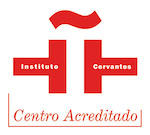DELE: official exams

In the world of languages, Spanish occupies a privileged place due to its wide diffusion and cultural and commercial relevance. If you live in Spain or plan to do so, you have probably heard about the DELE exam. But what exactly is the DELE and why might it be important to you? Below, we explain everything you need to know about this exam.
What is the DELE?
The DELE (Diploma de Español como Lengua Extranjera) is an official diploma that certifies the level of competence and command of the Spanish language. It is awarded by the Instituto Cervantes on behalf of the Spanish Ministry of Education and Vocational Training. The most remarkable thing about the DELE is that it is internationally recognized and its validity is indefinite.
Main features of the DELE exam
- Proficiency levels: The exam is structured in six levels, following the Common European Framework of Reference for Languages (CEFR), from level A1 for beginners to level C2 for advanced learners.
- Comprehensive evaluation: It evaluates all areas of language knowledge: reading comprehension, listening comprehension, written expression and oral expression.
- Flexibility: You can choose the level you wish to take, according to your language proficiency.
- Authorized centers: The exam is given in an exam center, such as Bcnlip, on dates established by the Instituto Cervantes.
Situaciones en las que Podrías Necesitar el DELE en España
- Estudios académicos: Si planeas estudiar en una universidad española y tu lengua materna no es el español, es probable que te soliciten un diploma DELE para demostrar tu competencia lingüística.
- Trabajo profesional: Algunas empresas, especialmente aquellas que operan en un contexto internacional, pueden requerir una certificación DELE como prueba de tu habilidad para comunicarte eficazmente en español.
- Trámites de nacionalidad: Para ciertos trámites legales, como la solicitud de la nacionalidad española, se requiere un diploma DELE que acredite un nivel mínimo de competencia en el idioma.
- Desarrollo personal y profesional: Obtener el DELE puede ser un gran impulso para tu CV, demostrando tu compromiso y capacidad para aprender y dominar un segundo idioma.
DELE 2024 calendar
| Date | Sign-up deadline date | Levels |
| Febuary 16 | January 10 | A2, A2-NA |
| April 12 | February 21 | A1, A2, A2-NA, B1, B2, C1 |
| May 17 and 18 | April 3 | A1, A2, A2-NA, B1, B2, C1, C2 |
| July 12 | May 15 | A2, A2-NA, B1, B2, C1 |
| September 13 | July 17 | A2, A2-NA |
| October 18 | September 4 | A2, A2-NA, B1, B2 |
| November 22 and 23 | October 9 | A1, A2, A2-NA, B1, B2, C1, C2 |
DELE vs SIELE: differences
↓ Differences: DELE and SIELE exams
Watch our video: more on DELE vs SIELE differences
Whether for professional, academic or personal reasons, obtaining a DELE diploma can open numerous doors for you in Spain and the Spanish-speaking world. In addition to being an official recognition of your Spanish language ability, it gives you a significant advantage in an increasingly globalized and multilingual world. If Spanish is not your native language and you are living or planning to live in Spain, seriously consider preparing for and taking the DELE exam – your future self will thank you!






